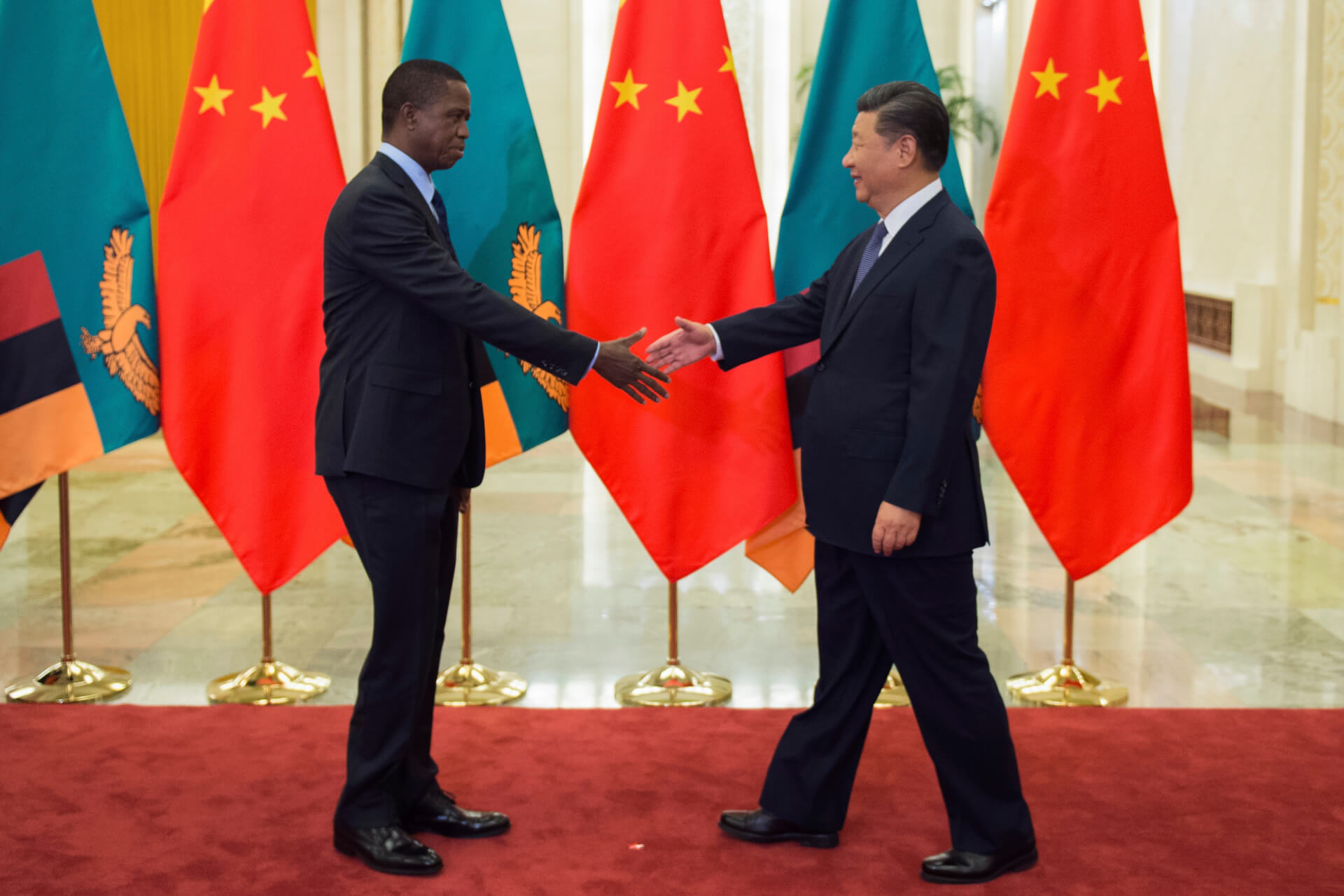Zambian President Edgar Lungu asked his Chinese counterpart Xi Jinping for “debt relief and cancellation” over a phone call. A statement issued by the Zambian government’s spokesperson, Isaac Chipampe, reads: “President Lungu called for debt relief and cancellation in light of reduced revenue due to the negative impact of the pandemic, as well as competing needs for the country, to secure adequate resources to fight the pandemic and to stimulate the economy.”
In return, Lungu pledged his allegiance to upholding China’s interests at the United Nations (UN), and his enduring support for the ‘One China Policy’. Indeed, he even celebrated the imposition of the new national security law in Hong Kong, which critics say threatens the autonomy and democratic principles of the special administrative region (SAR).
The president also reiterated his commitment to the Forum on China-Africa Cooperation, which has yielded several development projects. In fact, China has expanded its reach across the African continent and is the biggest creditor to the region, having loaned upwards of $160 billion to African countries. Most of this has gone towards infrastructure projects; however, the money has been loaned at high-interest rates, which forcefully increases and extends Africa’s dependence on China.
Accordingly, China has come under increasing scrutiny over the last few years for practicing what critics call ‘debt-trap diplomacy’, wherein its Belt and Road Initiative (BRI) has arguably compromised the sovereignty of low-income countries. For instance, Djibouti’s debt-to-GDP ratio rose from 50% to 85% after Chinese investment in 2014. In fact, it is estimated that around 20% of African government debt is owed to China.
Local opposition to Chinese presence is simmering. Chinese companies have seized control of Zambia’s copper industry, which accounts for 70% of the country’s export revenues. It is argued that these Chinese companies are operating with impunity and not “following the recommendations of the International Labour Organization”.
At one truck assembly factory, workers were forced to live on-site during the coronavirus pandemic, with a manager at the site saying, “We don’t allow them to go home because of the corona issue.” A similar incident was reported at a nearby cement factory, where workers were illegally held for over two months in ‘camp’ like conditions, wherein employees where threatened with physical violence if they refused to stay.
Moreover, their control has expanded beyond the copper industry, with Chinese state-owned firms winning contracts to construct airports, highways, hydro-electric stations, sports stadiums, and several other infrastructural projects.
In December 2017, eight Chinese nationals were recruited into the Zambian police force, and were only ‘decommissioned’ after huge public outcry over Chinese over-extension.
In Lusaka, there have been reports of Chinese restaurants denying entry to Zambian nationals, and of selling products labelled in Chinese, rather than English, which is violation of the law. In addition, a Chinese barber-shop has had its licensed revoked by Lusaka mayor Miles Sampa for “discriminating against blacks”.
In December 2018, erstwhile US national security adviser John Bolton alleged that China had threatened to take over Zambia’s state-owned enterprises if the government defaulted on its debt. Given that Zambia’s external debt was estimated at 35% of its GDP in December 2019, and that the coronavirus has likely only exacerbated these figures, its dependence on China is only growing. In fact, its external debt was $1.9 billion in 2011 and had reached $10 billion by 2018. China accounts for 44% of Zambia’s debt, and there are now over 22,000 Chinese nationals living in Zambia, in charge of 280 companies.
In June, Chinese Vice Foreign Minister Ma Zhaoxu announced the suspension of debt repayments for 77 low-income and developing countries, signaling China’s commitment to the G-20 debt relief program that was agreed to on April 15.
The Chinese government is yet to publicly clarify details on the suspension of debt repayment, including which 77 countries it is referring to, the amount of relief, or the terms and conditions of the suspension.
Therefore, it remains to be seen how China will respond to Zambia’s latest calls for debt relief and cancellation.
Zambia Asks China for Debt Cancellation, Reiterates Support for ‘One China Policy’
President Edgar Lungu asked Xi Jinping for “debt relief and cancellation”.
July 23, 2020

SOURCE: QUARTZ
